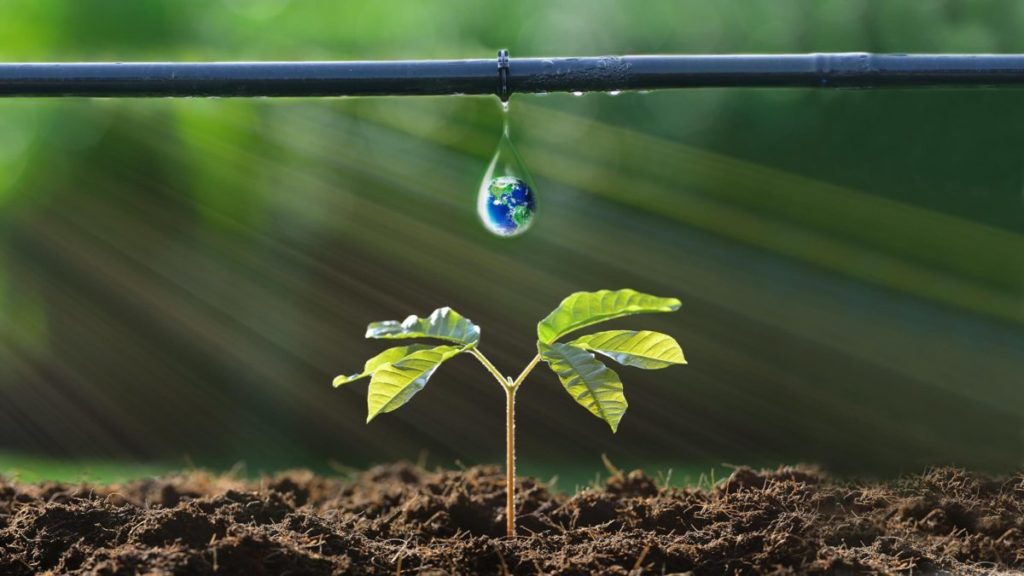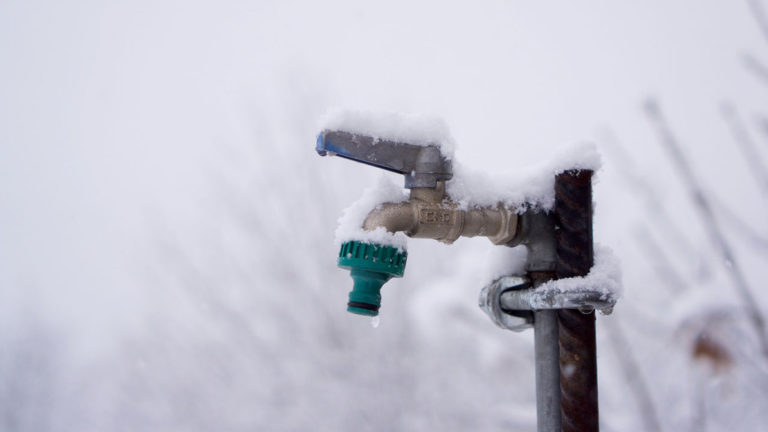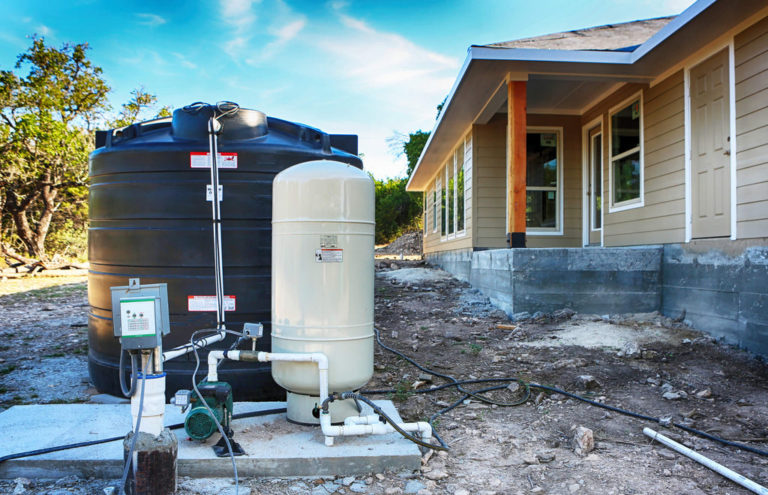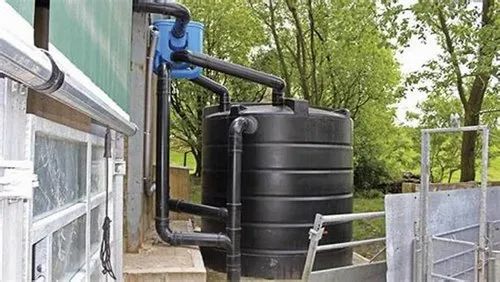Soil health is a important factor to consider when implementing an off-grid irrigation system.
A well-managed and fertile soil can optimize water use efficiency, improve crop yields, and enhance overall agricultural productivity.
In contrast, degraded soils can lead to reduced plant growth, decreased water infiltration rates, and lowered crop yields, ultimately threatening the success of your off-grid irrigation system.
By prioritizing soil health from the outset, farmers and growers can ensure their systems are operating at peak efficiency while also contributing to long-term sustainability goals.
Water Infiltration
Soil health is important for water infiltration in off-grid irrigation systems. If the soil is not healthy, it may not be able to absorb water efficiently, leading to runoff and reduced crop yields.
When the soil is healthy, it can absorb water efficiently, reducing the likelihood of runoff and improving crop yields.
Healthy soil is characterized by a well-developed network of pores and microorganisms that facilitate water penetration and retention.
In contrast, unhealthy soil can hinder water infiltration, leading to poor soil structure and reduced crop growth.
To promote soil health and maximize water infiltration, it is essential to adopt appropriate management practices, such as crop rotation, organic amendments, and mulching.
These practices help to improve soil organic matter content, increase the number and diversity of soil microorganisms, and create a more porous soil structure.
Using cover crops and maintaining a diverse crop rotation can help to reduce soil compaction, which can further improve water infiltration and reduce runoff.
By prioritizing soil health and implementing effective water management practices, off-grid irrigation systems can achieve optimal performance, leading to improved crop yields, reduced water waste, and a more sustainable agricultural system.
Nutrient Uptake
Soil health is also essential for nutrient uptake in off-grid irrigation systems. Healthy soil can absorb and retain nutrients more effectively, leading to better crop growth and yields.
Soil health is a critical factor in determining the success of nutrient uptake in off-grid irrigation systems.
When the soil is healthy, it can absorb and retain nutrients more effectively, leading to better crop growth and yields.
Healthy soil is teeming with microorganisms that break down organic matter and make nutrients more available to plants.
In contrast, degraded or tired soil may have poor nutrient retention and limited microbial activity, resulting in lower crop yields and poorer plant health.
Therefore, it is essential to prioritize soil health in off-grid irrigation systems by incorporating practices such as crop rotation, composting, and cover cropping to maintain soil fertility and structure.
Using locally available and organic amendments can help improve soil health and promote nutrient uptake, reducing the need for synthetic fertilizers and improving the overall sustainability of the irrigation system.
By prioritizing soil health, off-grid irrigation systems can optimize nutrient uptake and promote sustainable agriculture.
Soil Structure
Soil structure is critical in off-grid irrigation systems. Healthy soil has a balanced structure of sand, silt, and clay, which allows for proper water and nutrient infiltration and retention.
Soil structure is a critical component of off-grid irrigation systems, as it plays a important role in determining the distribution and retention of water and nutrients within the soil.
Healthy soil is characterized by a balanced structure of sand, silt, and clay, which allows for proper water and nutrient infiltration and retention.
When the soil structure is deficient or unbalanced, it can lead to poor water and nutrient penetration, reduced crop growth, and increased runoff and erosion.
In off-grid irrigation systems, the soil structure is particularly important as it can affect the efficiency and sustainability of the system.
For example, if the soil is too dense or compacted, it can hinder the infiltration of water and nutrients, reducing the overall effectiveness of the system.
On the other hand, if the soil is too sandy or porous, it can lead to excessive water loss and reduced nutrient retention.
Therefore, it is essential to ensure that the soil structure is healthy and balanced to maximize the benefits of off-grid irrigation systems.
This can be achieved through careful planning and management, including selecting appropriate crop varieties, using proper irrigation schedules, and incorporating conservation practices such as mulching and cover cropping.
By prioritizing soil structure, farmers and gardeners can improve the productivity and sustainability of their off-grid irrigation systems, leading to better crop yields and more resilient agricultural ecosystems.
Organic Matter
Organic matter is vital for soil health in off-grid irrigation systems. It improves soil structure, increases nutrient availability, and enhances water retention capabilities.
Here’s a detailed elaboration on the benefits of organic matter in off-grid irrigation systems
Organic matter plays a important role in maintaining soil health in off-grid irrigation systems.
By incorporating organic amendments such as compost, manure, or crop residues into the soil, it improves soil structure, increases nutrient availability, and enhances water retention capabilities.
Healthy soil with ample organic matter has better aeration, which helps roots penetrate deeper into the soil, improving plant growth and yield.
Organic matter acts as a natural sponge, absorbing and storing water, reducing soil compaction, and preventing erosion.
This leads to a more efficient use of water and improved system sustainability.
Incorporating organic matter also fosters beneficial soil biota, such as earthworms and microorganisms, which further contribute to nutrient cycling, soil organic matter content, and soil health.
By prioritizing organic matter management, farmers can improve soil fertility, reduce the need for external inputs, and create more resilient and sustainable off-grid irrigation systems.
Microbial Life
Soil microbial life is essential for nutrient cycling, water retention, and soil structure in off-grid irrigation systems. Healthy soil microbes help to break down organic matter and make nutrients available to plants.
Soil microbial life is a important component of any off-grid irrigation system, as it plays a vital role in nutrient cycling, water retention, and soil structure.
Healthy soil microbes, such as bacteria and fungi, break down organic matter and make nutrients available to plants, ensuring that they receive the necessary sustenance to grow and thrive.
This process of nutrient cycling is essential for maintaining soil fertility and promoting plant health, as it allows the soil to replenish its nutrient stores and support continuous plant growth.
Soil microbes help to retain water in the soil, which is particularly important in off-grid irrigation systems where water may be limited.
By promoting healthy soil structure and retention of water, soil microbes help to ensure that plants receive the necessary amount of moisture to grow and thrive.
In order to maintain healthy soil microbes, it is important to implement practices such as crop rotation, cover cropping, and the use of organic amendments, which can help to support the growth of beneficial microorganisms and maintain a balanced soil ecosystem.
By prioritizing the health of soil microbes, off-grid irrigation systems can optimize plant growth and productivity, ultimately leading to increased food security and sustainability.
Soil Biota
Soil biota, such as earthworms and other invertebrates, play a important role in soil health in off-grid irrigation systems. They help to aerate the soil, improve soil structure, and increase nutrient availability.
Soil biota, including earthworms and other invertebrates, are vital components of off-grid irrigation systems, playing a important role in maintaining soil health.
These soil dwellers help to aerate the soil, improving its structure and increasing nutrient availability.
Earthworms, in particular, are exceptional soil aerators, burrowing through the soil and breaking up clumps, allowing air and water to penetrate deeper into the soil.
This enhances the soil’s water-holding capacity, enabling plants to access the necessary moisture and nutrients for optimal growth.
Soil biota help to recycle organic matter, adding beneficial nutrients back into the soil.
By incorporating soil biota into off-grid irrigation systems, farmers can promote healthy soil dynamics, leading to improved crop yields and more resilient, sustainable agriculture.
Disease and Pest Management
Healthy soil in off-grid irrigation systems can help to prevent disease and pest management issues. When soil is nutrient-rich and has a balanced structure, plants are better able to fight off pathogens and pests.
In off-grid irrigation systems, healthy soil is important for preventing disease and pest management issues.
When soil is nutrient-rich and has a balanced structure, plants are better able to fight off pathogens and pests.
This is because healthy soil provides an optimal environment for root growth, which enhances the plant’s ability to absorb nutrients and water.
This, in turn, reduces the likelihood of disease and pest infestations.
Healthy soil acts as a barrier against pests, as it provides a habitat for beneficial organisms such as earthworms and microorganisms that prey on pests.
This creates a more balanced ecosystem, where pests are naturally controlled and plants are better able to thrive.
Moreover, healthy soil also helps to regulate water and nutrient cycles, which further contributes to the prevention of disease and pest issues.
By maintaining optimal soil health, off-grid irrigation systems can significantly reduce the need for chemical pesticides and fertilizers, ultimately leading to a more sustainable and resilient agricultural system.
By prioritizing soil health, farmers and gardeners can create a more balanced and sustainable ecosystem, where plants are better able to thrive and resist pathogens and pests naturally.
Climate Change Resilience
Soil health is critical for climate change resilience in off-grid irrigation systems. Healthy soil can sequester carbon, reduce greenhouse gas emissions, and improve water retention capabilities, making it more resilient to the impacts of climate change.
Climate Change Resilience: Soil Health is Crucial in Off-Grid Irrigation Systems
Soil health is a critical factor in the resilience of off-grid irrigation systems to the impacts of climate change.
Healthy soil has the ability to sequester carbon, reduce greenhouse gas emissions, and improve water retention capabilities, making it more resistant to the extreme weather events and changing environmental conditions associated with climate change.
By adopting practices that promote soil health, such as crop rotation, cover cropping, and organic amendments, farmers can improve the overall resilience of their irrigation systems and protect their crops from the negative impacts of climate change.
One of the primary benefits of healthy soil is its ability to sequester carbon.
Soil contains more carbon than all of the world’s vegetation and atmosphere combined, and healthy soil is capable of storing and retaining large amounts of carbon.
By promoting practices that improve soil health, farmers can increase the amount of carbon sequestered in their soil, which can help to mitigate the impacts of climate change.
Healthy soil can reduce greenhouse gas emissions by reducing the need for synthetic fertilizers and pesticides.
These chemicals, when applied to soil, can release nitrous oxide and other greenhouse gases into the atmosphere.
By adopting practices that promote soil health, farmers can reduce their reliance on these chemicals and minimize their carbon footprint.
Healthy soil improves water retention capabilities, making it more resilient to extreme weather events.
In off-grid irrigation systems, where water is already a precious resource, the ability to retain water is essential for ensuring the long-term sustainability of the system.
So, improving soil health through sustainable practices such as cover cropping, crop rotation, and organic amendments is a key strategy for increasing the resilience of off-grid irrigation systems to climate change.
These practices can help farmers to adapt to the impacts of climate change, while also reducing their carbon footprint and improving the overall health and productivity of their soil.
In off-grid irrigation systems, promoting soil health is a important strategy for climate change resilience.
By implementing sustainable practices such as cover cropping, crop rotation, and organic amendments, farmers can enhance the carbon sequestration capabilities of their soil.
Healthy soil contains more carbon than all of the world’s vegetation combined!
By maintaining the ideal moisture levels in their soil, farmers can reduce its ability to retain water.
By doing so, they ensure that their crops are not only healthier but also better equipped to adapt to the unpredictable nature of climate change.
Moreover, by integrating these sustainable practices, farmers can lower their carbon footprint and contribute to the overall health and productivity of their soil.
These practices form a key component of off-grid irrigation system resilience, as they allow farmers to not only adapt to the effects of climate change but also proactively mitigate them.
Off-grid irrigation systems that prioritize soil health are not only more resilient to climate change but also more sustainable and productive in the long run.
Want More? Dive Deeper Here!
Hey there! If you’re the type who loves going down the rabbit hole of information (like we do), you’re in the right spot. We’ve pulled together some cool reads and resources that dive a bit deeper into the stuff we chat about on our site. Whether you’re just killing time or super into the topic, these picks might just be what you’re looking for. Happy reading!






